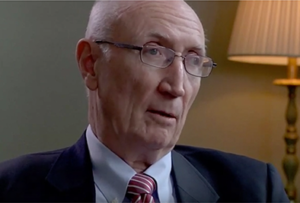For federal regulators, the Dodd-Frank Act (DFA) of 2010 resembles an earthquake so massive that its aftershocks threaten to go on forever. The overarching purpose of this legislation is to end the perception that very large financial organizations can and do make themselves economically, politically, and administratively so difficult to fail and unwind that their liabilities implicitly enjoy near perfect government guarantees.
Has the legislation had the intended effect? “No” is the definitive answer provided by Edward Kane, a professor of Finance at Boston College, and a longstanding critic of the direction which financial reform has taken since the collapse of Lehman. Kane acknowledges that the Dodd-Frank Act, Basel III, and Central Clearing for swaps do introduce new regulatory constraints, but feels that they are insufficient and will almost certainly will force reinforce managerial incentives to find ways to exploit taxpayers. This is especially likely given the success which the banking lobby has had in gutting some of the few meaningful provisions originally enacted in the legislation. Financial regulations continue to be negotiated, rather than imposed, laments Kane.
A big part of the problem is that DFA and the corresponding Federal Reserve commitment to stopping financial markets from imploding generates a de-facto commitment to “lending” generously to key firms in key countries in crises. But supervisory oversight remains largely national. So unless US regulators and legislators classify foreign affiliates of US firms as “US persons,” offshore operations can substitute compliance in foreign venues with advantageous foreign rules for unwanted US oversight. This is the kind of regulatory arbitrage that helped create the crisis in the first place.
Kane also notes the paucity of convictions from many of the bad actors of the period leading up to the crisis of 2008 during which financial fraud in the mortgage backed securities market was rampant. Banks have received the regulatory equivalent of a speeding ticket, which is hardly the kind of sanction required to induced changes in behavior. Kane suggests that a much more robust approach is required; one of his more suggestions outlined in the interview below is that to rebalance Incentives in government and Industry, legislatures could re-characterize deliberate exploitation of the “too big to fail” safety net not as inevitable “moral hazard,” but as a prosecutable form of theft. Kane goes further and suggests that this could be leveled on the corporation, as well as individual actors, especially now that a recent number of Supreme Court decisions such as “Citizens United” have now classified corporations as people. As things stand right now, Kane’s view is that the regulation introduced is nothing more than policy makers pretending to “spank” the banks and the bankers acting scared.
Video


